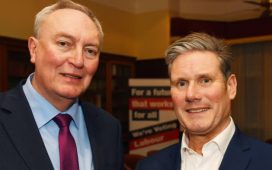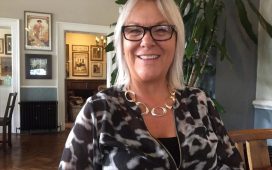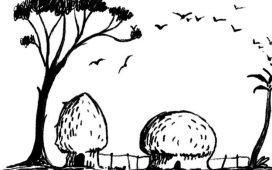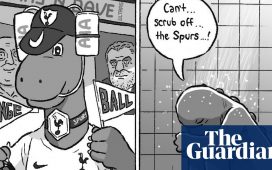Name: Rees Finlay
Age: 27
Income: £10,000-£15,000
Occupation: Comic book artist and publisher, Coventry
It was an ex-partner who got me into payday lending. I’d spent two years after leaving school on the minimum wage working in a chain-store stockroom. Her parents worked for a lender that called itself a “personal loan company” because it liked to think it bonded with clients by visiting them in their homes. I would have to canvas for custom by leafleting homes in impoverished postcodes. When someone applied for a loan I’d go to their home bringing cash in an envelope and I’d have to knock on doors collecting the repayments. I’d earn commission which meant the more money I forced out of people the more money I would make. I saw families broken and people dying. I felt like a fly on a corpse.
That experience has shaped my view of money and what it does to people. I was earning £800 a week, but realised that capitalism is not worth the damage it does. It also reinforced a lifelong feeling that I was the odd one out. Eventually it broke me. One New Year’s Day I rang the office and told them I was done.
I sold my collection of vintage video games and consoles for £1,000 to self-publish a comic book about my mental health. Art helps me process situations and I found myself drawn to superheroes to escape myself. The sales funded print runs of more comics, culminating in a book about my experiences with the loan company. This earned me £1,672 which gave me the confidence to approach big companies with samples and win commissions from Hollywood film studios illustrating official movie memorabilia. Comics never make much money so I took a £12,000-a-year job in a shop which enabled me to get a mortgage on an £80,000 flat, and I did my drawing in the evenings.
But in 2017 I was hospitalised after a suicide attempt. Everything was breaking down at the same time. A car accident had left me in a leg brace. I left the job due to bullying and lost my partner and friends who could not cope with my self-harming, outbursts and panic attacks. It was only after that that I was diagnosed with autism. It hit me really hard. During the wait for a referral, I was housebound and supported by family and small employment and support allowance payments since I was deemed fit to work.
I discovered that there were no books to help me that weren’t academic or aimed at parents or children so I decided to use comics as a way of reinventing myself. I pitched the result, Reaffirmation: Coming to Terms with an Autism Diagnosis to a publisher but the process was taking too long so I pulled out and crowdfunded it. It raised £4,758 after celebrity support on social media so I invested an extra £242 to print it in hardback.
Comics have given me a voice. They started out as escapism. I was a rebel without a cause and needed something to give me one. My autism has shown me a way to help make the world a better place. I’ve gone from the guy taking money off people to an autism advocate. I still have a lot of phobias about leaving the house. I don’t take holidays or eat out and I struggle to cook for myself. My parents drive me to Aldi at night when it’s emptier and I spend about £30 a week on microwavable food. But I’m hungry to be going out and socialising.
I’ve always wanted to be secure by 30 and I feel I’m on that path, scraping by on savings but with the potential to do something big. I’m a consultant for a proposed new autism training hub for councils and I earn enough to pay my £345 a month mortgage from Amazon royalties and my film work. I’d be worried if I wasn’t scared about the future. Things that have happened in my life have been bigger than me and the minute I start to become casual about what I’m doing is the minute I should question whether I’m doing it right. I want to prevent others from falling between the cracks as I did. Somebody shouldn’t be found half dead on the floor before people take notice.
• In the UK and Ireland, Samaritans can be contacted on 116 123 or email jo@samaritans.org or jo@samaritans.ie. In the US, the National Suicide Prevention Lifeline is 1-800-273-8255. In Australia, the crisis support service Lifeline is 13 11 14. Other international helplines can be found at www.befrienders.org.














